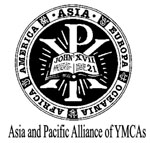YMCA and Y's Men movements for collaboration
YMCA and Y’s Men met and exchanged Memorandum of Understanding (MOU) for further collaboration the two big and worldwide movements on March 6th and 7th. We agreed in making efforts in collaborating in the following ways.
- Request all the national YMCA and local YMCAs meet with their respective Y’s Men Regional, District or club levels, and make own MOU.
- Discuss together for creating Mutual presence of leaders of YMCA and Y’s Men in various functions and meetings.
- Create a Joint project for the sake of communities and young people.
- Support extension for Y’s Men’s clubs where YMCA exists.
- Support together in Natural disaster responses.
- Cooperate concretely in GCI, YE, TOF, Green initiatives, GATN, etc.
- Conduct training to YMCA staff and Y’s Men members for understanding the spirit of MOU
There are 1,204 local YMCAs with over 9 million members and beneficiaries, while there are 1,061 Y’s Men’s Clubs and 19,385 members in the same area of Asia and Pacific; 24 YMCA movements and 4 areas, 19 regions. For YMCA this is growing area for more social needs and roles of civil societies have been focused for attention. For Y’s Men, this is the biggest area in the world and 70 % of the Y’s Men members in the world are in four areas covering the APAY service areas. Therefore, it is important to understand each other and to develop strategies to help each other to gain the goals of those two big and global organizations. In that sense this was the first time for APAY to conduct such intensive meeting with Y’s Men’s leaders of the world including the three big areas in Asia.
In the meeting, several countries where YMCA exist but have no Y’s Men’s Club were identified. Surprisingly five of those movements this time agreed to create a new club. Those include Cambodia, Mongolia, Fiji, Indonesia, and Myanmar (there is one Y’s). Another observation is that it is necessary for both groups to discuss more concretely for better ways of collaboration between the two organizations. With that in mind, several people drafted the MOU this time, and the MOU was signed between APAY and three Area presidents in witness of Rev. Johan Eltvik, Secretary General of World Alliance and Mr. Takashi Nishimura, Secretary General of Y’s Men International with Mr. Isaac Palathinkal and Mr. Wichan Boonmapajorn, the next International Presidents.
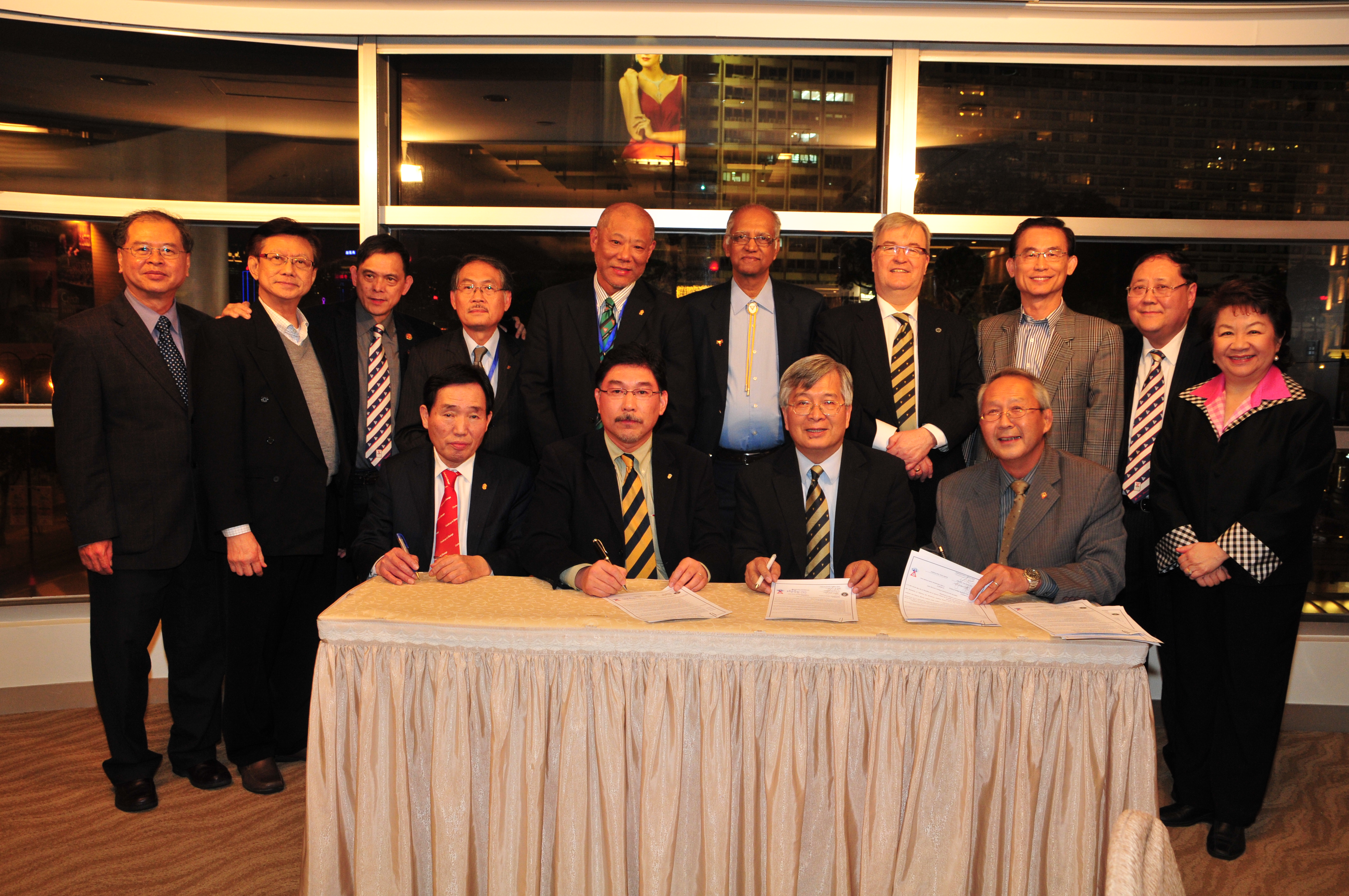
~ Kohei Yamada, General Secretary, APAY
Speech by Mr. Tu Hanqiao at the Welcome Dinner of Executive Committee Meeting on March 6
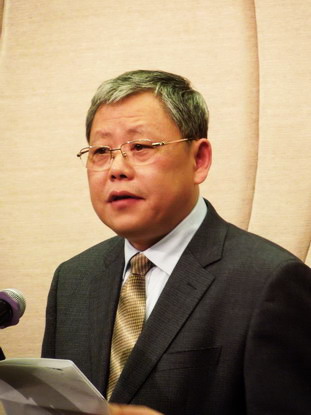
It is my great privilege to be invited to share with you the current situation of YMCA in China. Before I am going to tell you the story, I would remind you of some background information, some key elements may help you better see how and why the story took place and is going to be.
Four key elements
-
1. The first YMCA was founded in a missionary college in 1885, which marked the starting of YMCA movement in China, boasting a history of nearly 130 years. The first city YMCA was founded in Tianjin in 1895. The National Committee of YMCAs of China was established in 1912, representing 25 city YMCAs and 107 student YMCAs at that time. 2012 witnessed the centennial anniversary of the National Committee of YMCAs of China.
2. YMCA ceased organizational operation in 1966 in the radical revolutionary time. In 1980, the National Committee of YMCAs of China took the lead to rehabilitate, and then followed by 10 city YMCAs. During the early days of rehabilitation, the National Committee of YMCAs of China devoted to the heavy and important task to train new generation of leaders and staff. The good work resulted to be very fruitful. The National Committee encouraged the local organizations to develop programs mainly in the four areas, which were educational, sports and wellness, cultural and recreational, community service so that YMCA could “serve the society and benefit the people”. All these witnessed the revival of YMCA movement in China.
3. In general, the process of YMCA development in China was an effort for indigenization and practice of YMCA value in Chinese context. YMCA then launched four movements of literacy education, livelihood education, health education and civic education directing against the four social ills in old China, which were “illiteracy, poverty, unhealthiness and egoism”. YMCA was unique that has popularized modern sports in China. Basketball, for example, was introduced into China by Tianjin YMCA.
4. China is different from other countries in social system, thus YMCA in China develops in the special social context. In China, Christianity is not in the main social stream and YMCA is very often taken as a religious organization. This more or less hinders YMCA to develop social resources and supportive partners. Even though, we insist on Christian faith and value. We take care our corner stone very seriously. YMCA maintains close relationship with churches and YWCA, as we are in one body of Christ. Top leaders of YMCA also take part in the leadership of churches, and this close relationship also reflects in specific work. We have cooperation and joint projects with churches in social services.
Recent situation
The National Convention:
The most important and exciting event in recent years is the 2012 National Convention.
For many years after its restoration in 1980, the National Committee of YMCAs of China has played an important role in promoting YMCA movement in China. For the purpose of further development and institutional construction, the leadership both at the national and local levels were getting more and more concerned about the mechanisms of the National Committee.
The year 2012 marked a milestone in the history of YMCA revival in China. On April 15, the National Convention was held in Beijing. Delegates representing 10 YMCA movements gathered for the first time after 1949. The convention resulted very positive and achievements were made as following: the National Committee of YMCAs of China changed its name as the National Council of YMCAs of China, to emphasize the involvement of local movements and clear status of the National Movement; the constitution of the National Council was revised; the new leadership was elected and a five year strategic plan was approved. The institutional construction became the top priority.
Social Service:
Currently, we have YMCAs in ten major cities; Beijing, Shanghai, Guangzhou, Wuhan, Xian, Hangzhou, Tianjin, Nanjing, Xiamen and Chengdu. In recent years, Local YMCAs celebrated one after another their 100th anniversaries. Nevertheless, programs have overstepped the tradition and opened up vaster space for development, and our services are extending to small towns and villages. Programs and projects cover youth development, environmental protection, peace education, employment training, serving the seniors, helping the disadvantaged, medical aid and some local organizations are also involved in the hot social issues of AIDS, migrant workers, sexual abuses to the children, better living of agriculture population in urbanization.
Last June, the National Council of YMCAs held the Social Service Exhibition. It was exciting and inspiring. YMCA programs and services are far beyond the geographical limitations. Today, ten YMCAs work at over 200 program centers and community bases to carry out YMCA mission among different people. 444 staff with the help of 33,837 volunteers, served close to one million people in the year.
The transformation can trace back to late 1990th. When YMCA in China was confronting the rapid social change and reform, we saw through the great challenges our opportunities to expand and looked for more spaces to develop in meeting with increasing social needs. When the government of Shanghai took the initiative to reform its community service system and provided the chance for NGO to join in the community project, Shanghai YMCA was commissioned to undertake the operation of community center in Pudong area in 1996. That was a good exploration for YMCA to cooperate with different social sectors in creating a new mechanism for community service. That also pioneered the way for all the local YMCAS. By the end of last year, the government commissioned projects had an increase to 32, undertaken by local YMCAs.
And in recent years, our new targeted groups are floating population and their children, as well as elderly people. Coming along with the rapid urbanization, China has seen a rapid tide of transfer of rural labor force to urban cities. The people have floated from economically less developed areas to developed areas, pursuing mainly a better income. The access for their interaction with local people and equal social participation are limited despite their strong intention to integrate into local communities. Owing to the same problem, their children are at a disadvantage in terms of schooling, social participation and overall development. The situation is even worse for the left-behind children and aged people. The National Council of YMCAs of China is helping and encouraging local organizations to work with these children and their families in the schools and rural centers.
With the increasing of program centers and government commissioned projects, new challenges also come together, challenges to our organizational strength, capacity of our social work, professional skills, and so forth. What if we get lost in doing the business? Shall we miss the mission? Is there character building in spirit, mind and body in the programs? We have to keep asking ourselves.
Overseas exchanges
YMCA of China treasures the international fellowship and network, and to strengthen close ties with YMCAs around the world is one of the important roles of National Council. In recent years, international exchanges have been conducted through a number of institutional and thematic activities to deepen connotation. I would like to mention in particular the China-Japan-Korea YMCA Peace Forum, Sino-Japanese YMCA Peace and Friendship Youth Symposium, China-Japan-Korea YMCA Youth Peace Camp. We make our efforts to unite our young people to have a better participation in making peace in North-east Asia.
Volunteers
Our strength lies in the capability to gather people who are willing to help and share resources with others, assembling individual passion to group value. For the YMCA, volunteers are our most valuable and indispensable asset, and their participation is an inexhaustible motive force for us.
YMCA provides for volunteers a platform of social service to give full play to their initiatives. We encourage creativity of volunteers in program planning and operation, to help the personal growth of the youth. At the national level, we implemented a 3-year project targeted at 100 local YMCA youth leaders, aiming to improve their understanding of YMCA movement, develop their leadership endowments. It has been proved that the project had very positive effects, and we are still expecting more.
The Psalmist said:
Steadfast love and faithfulness will meet;
righteousness and peace will kiss each other.
Faithfulness will spring up from the ground,
and righteousness will look down from the sky.
The Lord will give what is good,
and our land will yield its increase.
Righteousness will go before him,
and will make a path for his steps. [Psalm 85:10.]
We hope YMCA in China can contribute to social justice and improvement of a civil society through our community services and help the people to help themselves.
APAY Green YMCA Award 2013
The APAY Green YMCA Award for the year 2013 was declared during the Executive Committee Meetings of APAY during 5-7 March 2014. The Green YMCA Award was presented to the Chinese YMCA of Hong Kong and YMCA Geelong, Victoria, Australia.
Mr. Karl Lau, General Secretary of the Chinese YMCA of Hong Kong and Mr. Ron Mell, National General Secretary of the National Council of YMCAs of Australia, received the crests on 5th of March during the Welcome Dinner for the ECM delegates hosted by the Chinese YMCA of Hong Kong.
With a view to recognize and reward the YMCAs who are engaged in green activities in our region, the APAY Green Team has launched the APAY GREEN YMCA AWARDS from the year 2013. The YMCAs of our region were invited to participate in this award program. From now onwards this will be an annual event of APAY.
With great interest the APAY Green Team observed and scrutinized the environmental initiatives of the Chinese YMCA of Hong Kong in their collective efforts to make this world greener. The Green Team has been successful in implementing numerous environmental programs which has helped the YMCA facilities to be eco-friendly and reduce carbon footprints of the YMCA at large.
The activities of the Green Team of the Chinese YMCA of Hong Kong are praiseworthy. Project Zero in Wu Kwai Youth Village had played a major role in paving its way towards making the site carbon free. The renewable energy equipment and energy saving appliances installed at the site have saved several hundreds of thousands of kilowatts of electricity in a year and reduced hundreds of tons of carbon dioxide emission. The constant monitoring system of the carbon emissions is also commendable.
Various campaigns organized by the Green Team like the ‘No Plastic Bottle Day Road Show’ in the railway stations, ‘No Plastic Day’, ‘No Air Con Night’, ‘Zero Carbon Living Day Camp’, where numerous people from various quarters of the city have participated. Study Tour for the youth members to Malaysia to assess the environmental impacts of the tropical rain forest have enhanced the capacity of the youths to understand the reasons of the depletion of nature. These environmental endeavors are great learning experiences for us the YMCAs of this region and beyond.
The Chinese YMCA have already earned a number of recognitions from various governmental and non-governmental organizations for their relentless efforts to make this world an environmentally safe place to live in and the Green Team of Asia & Pacific Alliance of YMCAs also joined them to recognize the environmental efforts of the Chinese YMCA of Hong Kong with presenting them the APAY Green YMCA Award of the year 2013.
In 2013, YMCA Geelong, of Victoria, Australia have focused on its environmental credentials. The YMCA Geelong site Camp Wyuna is a pilot site of the Spark, Energy for Change program which is coordinated by the Australian Conservation Foundation. Fifteen members of the staff of the Geelong YMCA have formed the Green Team, who have been trained and entrusted to undertake energy audits of the site and recommend efficiency measures to reduce its carbon footprints. This Green Team has also been entrusted to perform energy audits in seven Spark pilot projects throughout Victoria. The Green Team of YMCA Geelong has also been actively engaged on site to undertake energy efficiency measures in the YMCA facility.
The Camp Wyuna have installed solar panels which cover 25% of the camp’s daily energy, utilizes harvest rain water for the camp, ensures reduced usage of heaters, ensured light management to reduce energy consumption. They have changed existing lights to LED lights. The Camp Wyuna have embraced education around energy use as a part of camp programs. The camp has been using its vegetable garden and composting site.
All these efforts of YMCA Geelong, have played a pivotal role in reducing carbon emissions and transformed it to a model YMCA for environmental practices. APAY hopes that such environmental initiatives of YMCA Geelong shall be followed by other YMCAs of our region. The APAY Green Team in recognition and praising the green activities of YMCA Geelong presented the APAY Green YMCA Award for the year 2013 to YMCA Geelong, Victoria, Australia.
~Duncan Chowdhury, Executive Secretary, APAY
New General Secretary of YMCA of Singapore
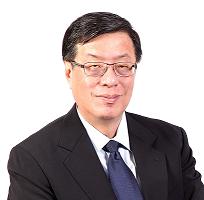 The YMCA of Singapore has appointed Mr. Lo Chee Wen as its new General Secretary with effect from March 4, 2014. His last appointment was Vice-President of the SMRT Corporation Ltd from 2006-2010. Prior to the appointment, he was the Director of Organization Development Unit and Deputy Director of Station Operations of SMRT. The YMCA of Singapore has appointed Mr. Lo Chee Wen as its new General Secretary with effect from March 4, 2014. His last appointment was Vice-President of the SMRT Corporation Ltd from 2006-2010. Prior to the appointment, he was the Director of Organization Development Unit and Deputy Director of Station Operations of SMRT.
Chee Wen is an accountant and graduated from the National University of Singapore with a Degree in Bachelor of Accountancy. He is a member of the Institute of Singapore Chartered Accountants.
Chee Wen remained actively involved in the community service in recent years. He helped small charities under the umbrella of National Council of Social Service to put in place proper financial procedures for good governance. He volunteers as Champion of Communities of Practice on Financial Governance with the Social Service Institute. He serves as Chairman of the School Management Committee of Grace Orchard School, Member of the Audit Committee of the Council for World Mission, Chairman of the Audit Committee and non-ruling elder of Providence Presbyterian Church. He is a Member of the Finance Committee of the Singapore Bible College and as Business Advisor under the Spring Singapore in the SIM Business Advisors Programme. He also participated in mission work to Thailand and Myanmar.
Chee Wen is married and has two children. He attends Providence Presbyterian Church and is actively involved with youth work.
Let’s welcome him to the YMCA family and wish him every success in his new role.
First Subregional School of Peace (SOP) concludes in Sri Lanka
The participants of the sixth School of Peace (SOP) conducted by Interfaith Cooperation Forum (ICF) celebrated the end of the program on Feb. 4. For this SOP, ICF modified the selection of the participants by primarily choosing young activists from the same subregion of Asia who share a similar history, issues and culture, anticipating that through sharing these common denominators the participants would gain even more from the program. Held in Sri Lanka, all but two of the 10 participants were thus from South Asia—Bangladesh, Nepal and the host country—with the remaining members of the program from East Timor.
ICF also revised the structure of this SOP by splitting the original 14-week program into two parts with the first two modules presented between August and October 2013 in the community of Pamunugama close to Negombo on the west coast of the country and the last module beginning on Jan. 7 in Kallar on the east coast of Sri Lanka south of Batticaloa. Between October and January, the participants were to use what they learned in the first two modules in their work with the issues in their own community.
During the program, sessions were devoted to the origins and core values of Buddhism, Christianity and Islam; the role of identity in creating conflict; various manifestations of violence—war, gender-based abuse, evictions and poverty; and a variety of strategies and skills for stimulating social change, including dialogue and engagement, structural analysis, community organizing and tools for transformation, such as photography.
|
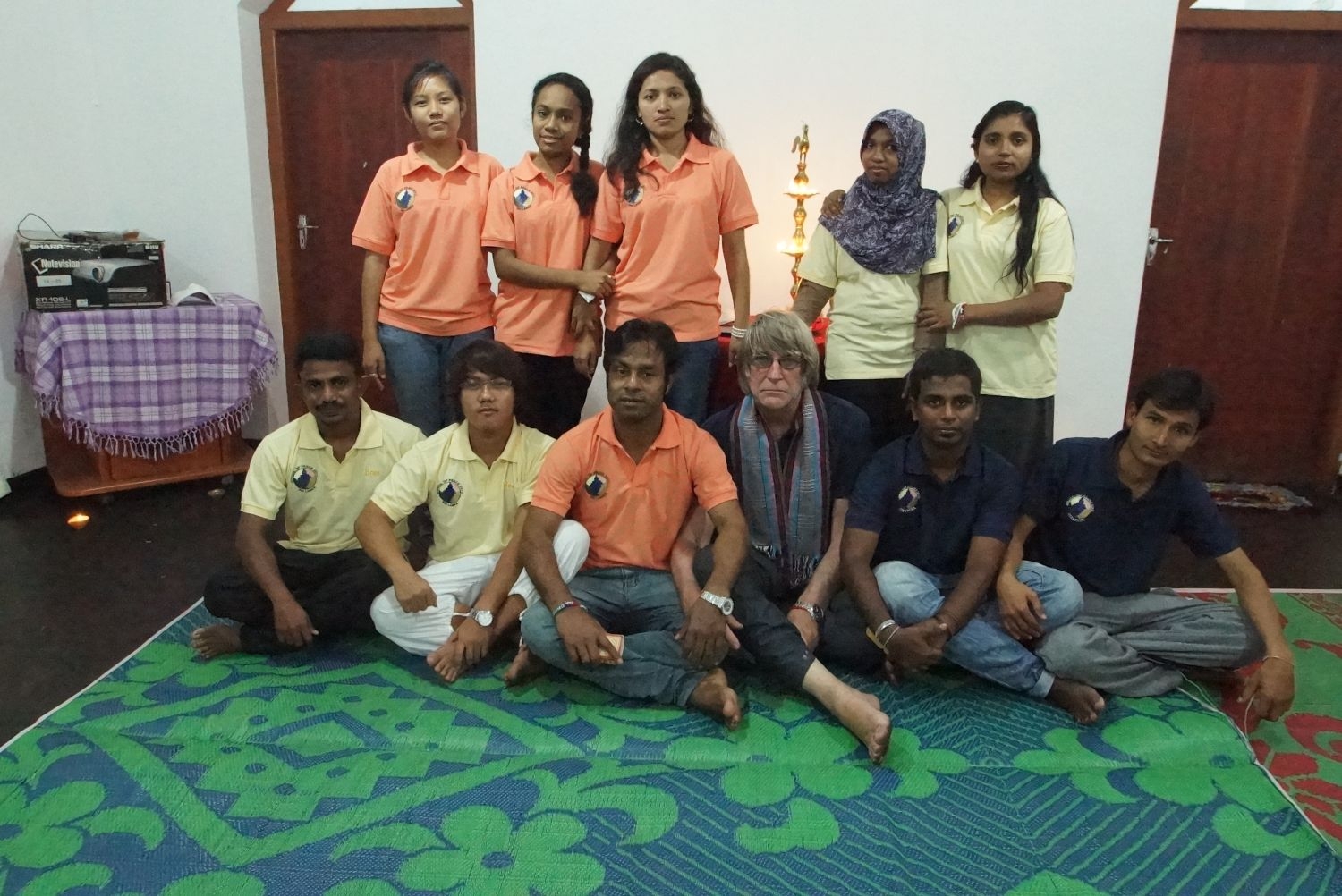
|
| The participants and resource people of ICF's sixth School of Peace held in Sri Lanka. |
~Bruce van Voorhis, Interfaith Cooperation Forum (ICF)
ICF combines Tools for Tranformation with Community Organizing at Workshop in Nepal
Interfaith Cooperation Forum (ICF) has organized a series of workshops since 2012 to train some of its School of Peace (SOP) alumni to be resource people for a variety of topics. For the first time, two of these topics—tools for transformation and community organizing—were combined in one workshop that was held from March 16 to 23 in Kathmandu, Nepal, with seven SOP alumni from Bangladesh, Burma, Indonesia and the host country participating in the program.
During much of the workshop, two of the SOP alumni acted as resource people for a whole day to explain how to use one of the tools of transformation—music, art and drama—to organize their community based on their work and involvement in their own context. In this way, each SOP alumni gained confidence and experience as a resource person, and the other participants learned from each other.
The workshop participants also brought materials to share with each other that they use in their own community that were collected to be utilized as the basis for a resource kit on tools for transformation and community organizing.
Lastly, one day of the program was devoted to gaining a deeper understanding of community organizing so that the participants can be more capable resource people in this area as well as more effective organizers to better promote and work toward achieving justpeace in their own community.
~Bruce van Voorhis, Interfaith Cooperation Forum (ICF)
EASYNet Core Team Meeting
The Ecumenical Asia-Students and Youth Network (EASYNet) Core Team (CT) meeting was held during 23-26 March 2014 at Paradornparp International House, Chiangmai, Thailand. The EASYNet is a voluntary network of youth and students movements of Asia and the Pacific. Delegates from Christian Conference of Asia, International Movement of Catholic Students Asia-Pacific, World Student Christian Federation Asia-Pacific Region and Asia Pacific Alliance of YMCAs participated at the meeting. This was an annual event of the EASYNet Core team where EASYNet plan for the year ahead. It seeks to promote the spirit of ecumenism at the grassroots level through a deeper understanding of the realities as well as a common desire to confront the challenges facing the youth and students.
The Core Team members are concerned to promote ecumenical partnership and coorperation among EASYNET members, share challenges, perspectives, vision and hopes among youth and students in Asia-Pacific and develop relevent responses in their respective movements. They also encourage to develop and enhance information exchange between and among students and youth groups in Asia-Pacific, provide a platform for student and youth groups to experience inter-cultural and inter-religious solidarity, extend cooperation and collaboration to other students and youth networks in regional and global level and involve in fund raising for materializing the purpose of the EASYNet in future.
EASYNet Action Plan 2014-2015
- National Cordinators Training
- Asia Pacific Students and Youth Week (APSYW)
- Funds Raising
The committee felt that the EASYNet National Coordinators training is more imporant. The National Coordinator’s role is to cultivate and nurture networking among the local ecumenical students and youth organizations. The National coordinators are expected to meet at least once every two years to build a strong network that will eventually support and nurture each other. This meeting will provide them the opportunity to know and lean more about the current issues and realities.
The EASY Net shall organize Youth Week during the third week of October 2014. During this event, the students and youth in Asia Pacific come together to learn about the social realities in their respective countries and share good practice in addressing the issues and challenges . A resource book being is prepared by the EASYNet member organizations.
Mr. Roger Peiris, Youth Officer of the Asia and Pacific Alliance of YMCAs participated at the meeting representing the APAY. The YMCA national movements of our region are requested to follow up with him, for implementing EASYNet programs in their respective countries.
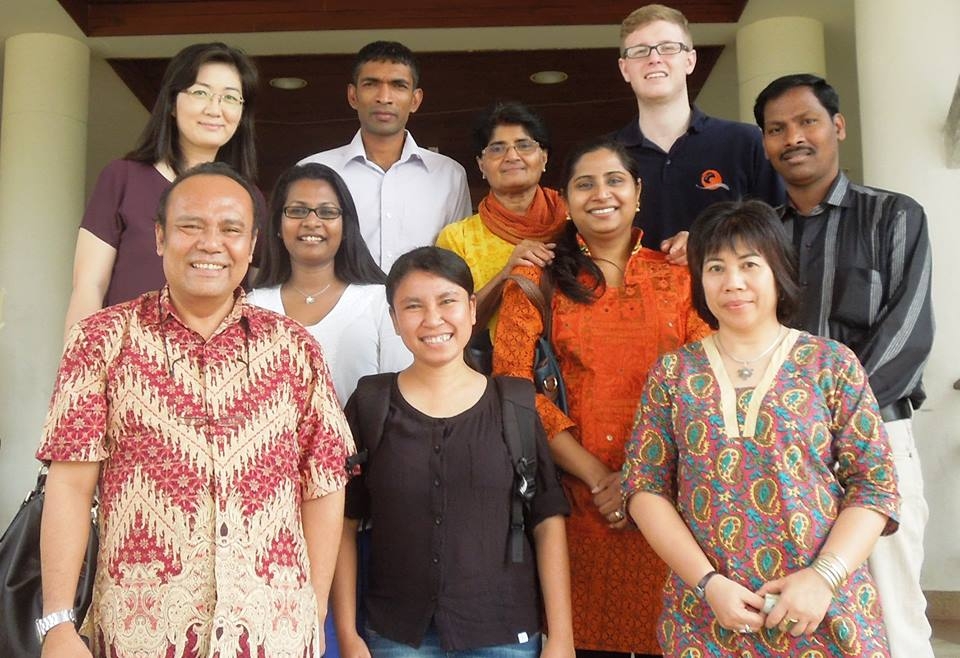
~ Roger Peiris, Youth Program Officer
YMCA INternational Youth Symposium (IYS) in Hong Kong
During the period of 28/12/2013 – 2/1/2014, YMCA of Hong Kong & Campus YMCA of Hong Kong organized the captioned symposium. The theme of the symposium is ‘Transformation-“Youth’s Convergence and Determination to transform the World’.
The Campus-Y is youth-led and student-initiated student body under YMCA of Hong Kong’s support. With the aim to share our vision, build greater network and strengthen the organization capacity so as to make even greater positive impact on the community, over 80 international and 120 local youth delegates, and over 100 volunteers joined the 6-day symposium. Both local and international delegates could be exposed to the dynamics of the cultures in Hong Kong, discuss upon different development issues, and draw up plans for future projects. One highlight of the event was the long table dinner held in local district of Sham Shui Po. Over 500 participants, including the local residents, ethnic minorities, elderly and delegates enjoyed the Chinese punchoi dinner together, at the same time some delegates volunteered to show performances from their own nation.
The symposium ended with the declaration of youth pledge at the closing ceremony. With the overwhelming positive feedback from the participants, it is believed the momentum for transformation would be maintained when they have come back their own country. To stay close with the IYS, you may refer to the Facebook page of https://www.facebook.com/ymca.iys
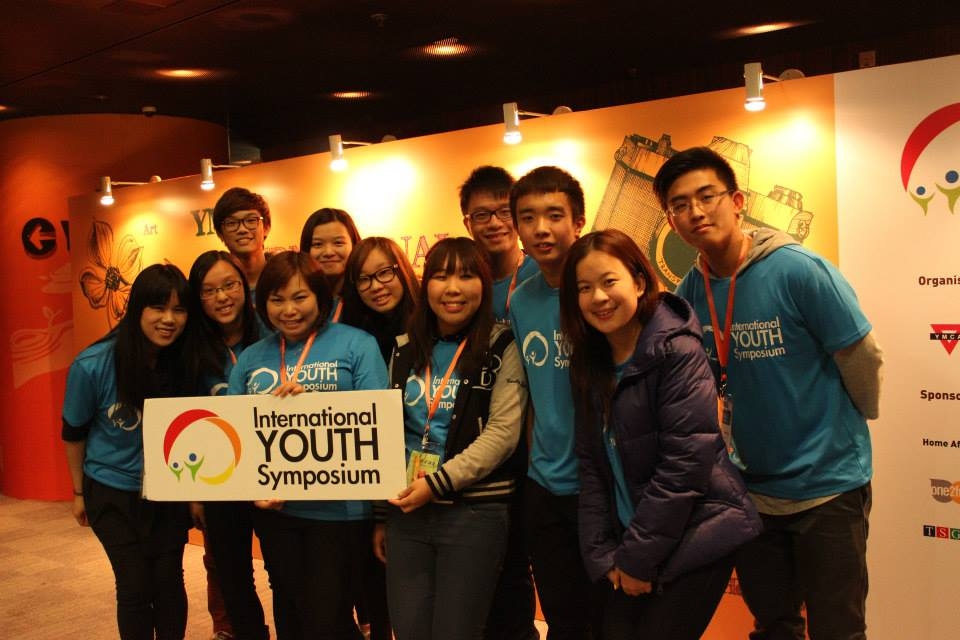
~ Tina Ngai, Co-chairperson, Organizing Committee of YMCA International Youth Symposium 2013/14, YMCA of Hong Kong
|
